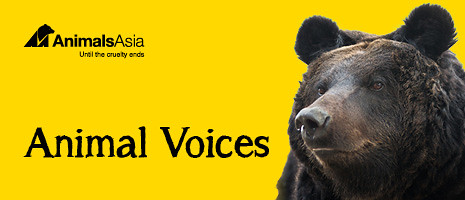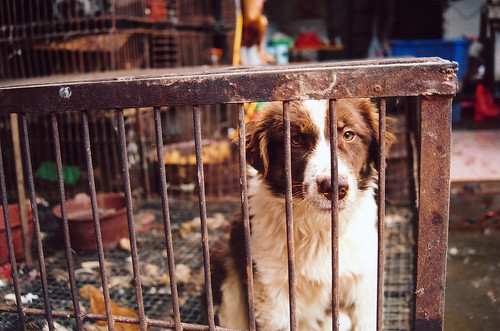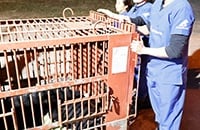Why does animal abuse persist worldwide?
20 October 2015
Animals Asia Animal Welfare Director Dave Neale discusses why animal cruelty persists worldwide regardless of a country’s level of development.
Q: Why do you think people abuse animals or are willing to accept the suffering and abuse of animals?
I would break this down into intentional abuse and non-intentional acceptance of abuse and suffering.
Non-intentional acceptance of abuse and suffering happens all of the time, mostly due to a lack of understanding about animals. If a person does not understand that an animal suffers both physically and emotionally then they may put them into situations, or actively participate in activities which cause suffering - without fully understanding the consequences of their actions.
We try to change people’s attitudes towards animals by discussing their emotional and cognitive abilities. We try to get people to see these abilities within animals and to understand that animals are sentient and can experience both pain and pleasure. If a person does not see animals in this way they are more likely to either cause or accept suffering and cruelty.
Intentional cruelty has a different root cause. A fair amount of evidence has been collected in recent years demonstrating that some people are deliberately cruel to animals because something has happened to them in their lives. In some cases this intentional animal abuse is done as a way of dealing with their own abuse.
Fundamentally, animal cruelty and suffering occur because of a lack of understanding that animals can suffer. It is our job to educate people that all animals can suffer, and encourage people to change their actions accordingly.
As Animals Asia’s Animal Welfare Director, David Neale works to improve the plight of animals in zoos and safari parks and increase overall veterinary and welfare standards in countries in Asia. His prolific career has taken him all over the world, rescuing animals in Bolivia, working as an ecologist in England and promoting animal welfare education in schools and universities. Since joining Animals Asia in 2002, David has traveled extensively across the continent helping to rescue moon bears in Vietnam and carrying out zoo investigations in China.
BACK







 5 reasons the dog meat trade must end
5 reasons the dog meat trade must end
 New year, new home for Christmas the Bear!
New year, new home for Christmas the Bear!
 Veterinary welfare training – pain management
Veterinary welfare training – pain management